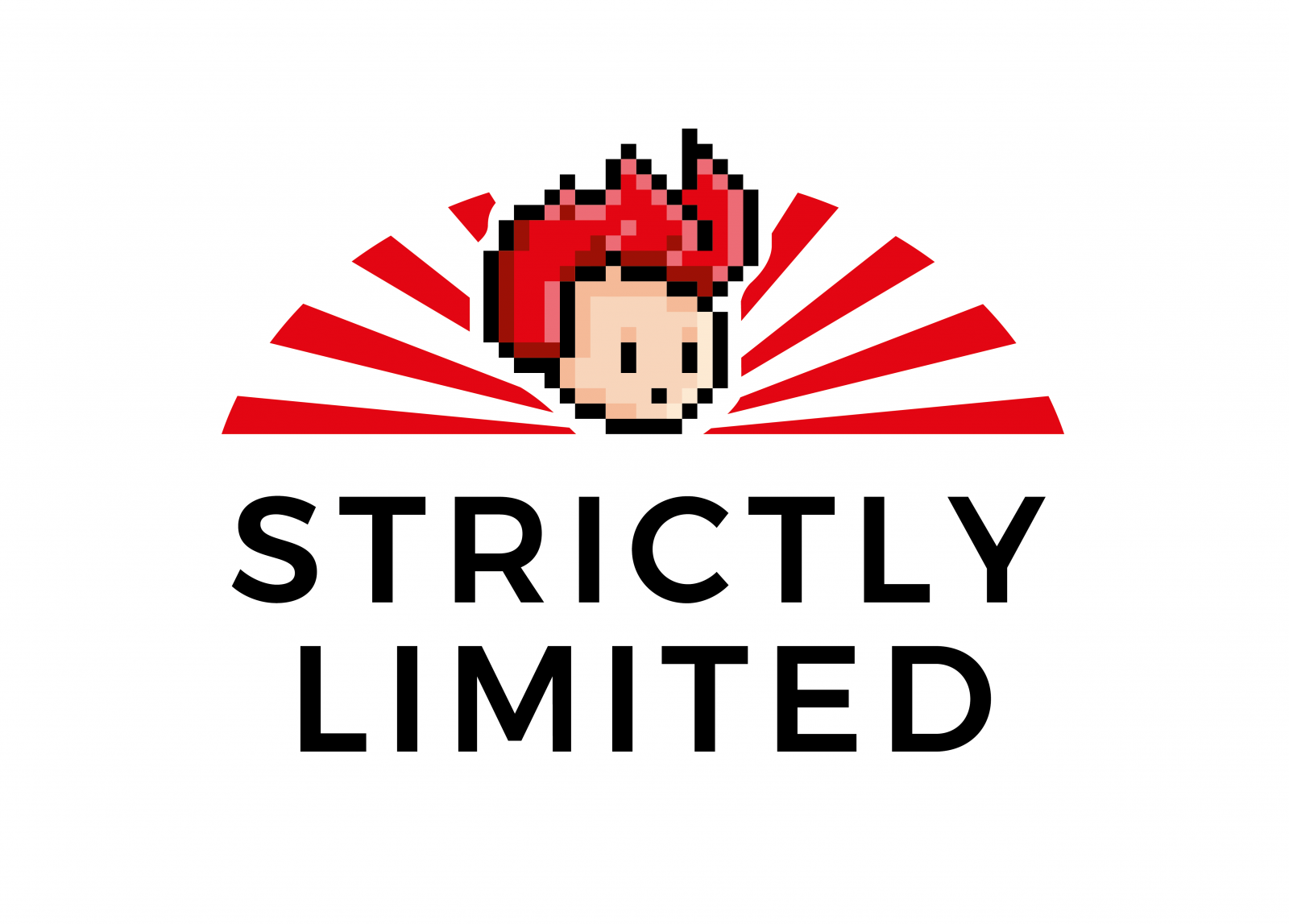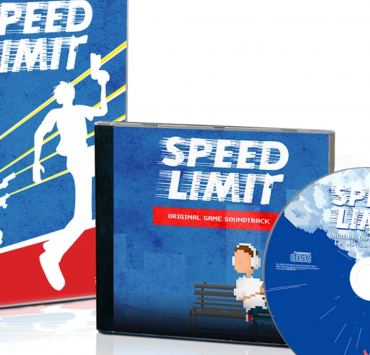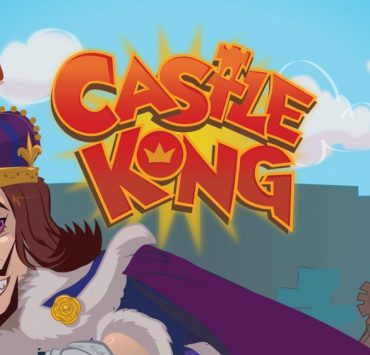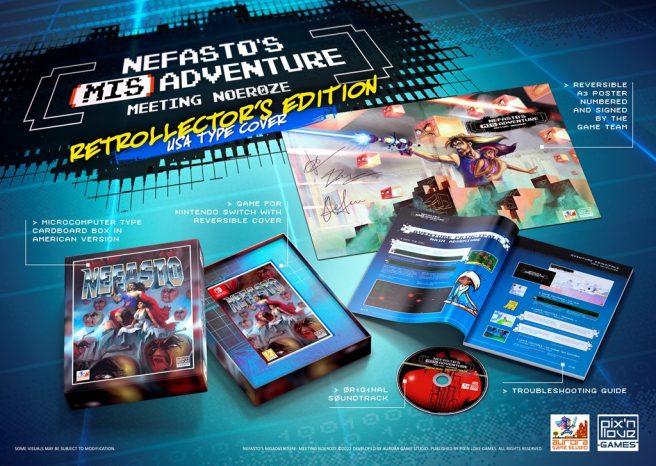Why Are There So Many Independent Physical Publishers These Days?

Today, I found an email in my inbox from Derek. He represented the physical games publisher Strictly Limited Games who wanted to let me know that pre-orders for a physical edition of Speed Limit would open on the 21st of February exclusively on their store. It honestly looks like an okay game, but me being me, I got distracted by something else… independent physical publishers.
So without further ado, here is a brief history of third-party independent physical publishers and how there came to be to be such an abundance of them.
Side Note: I refer to these publishers which create physical editions of (often previously released) games for other developers and publishers as both independent and third-party interchangeably as I don’t actually know what the official term is, if there is one. Also, I get some of my information surrounding Speed Limit from the public website, and the rest (including pricing) is from Derek’s email.
The short answer is that it’s an incredibly profitable and low-risk business model which has led to a pile on of competitors. You’ll find the longer answer if you read on.
On clicking on the prescribed link found in the aforementioned email, I was presented with a roughly thrown together shopify store with 5 filtered Speed Limit related products. A standard edition (€29.99) and a soundtrack bundle (€44.99) for each PS4 and Switch as well as an aluminium plate (€9.99).
Strictly Limited launched back in 2017, but it certainly wasn’t the first or the last. One competitor, Limited Run Games launched in 2015 and has since racked up almost 200K followers on Twitter compared to Strictly Limited’s 20K. Premium Edition games (5K followers) launched in late 2019 with an exclusive focus on Switch games so far. (Launch dates based on their various, linked, twitter accounts and LRGs confirmed by its Wikipedia page).
Their name certainly doesn’t lie as the different editions are in fact Strictly Limited. Here’s a breakdown of the numbers in a google sheet and how much Strictly Limited stands to make if it manages to sell all its Speed Limit product.

There’s two interesting bits of information that can be learnt from this. Firstly, total possible revenue assuming they sell every single item is just under €200,000 or £175,000 (Whether they actually do pull off selling it all or not will be something I’ll look into later in this article). Secondly, the focus is clearly on the Switch with 66% of standard editions and 67% of soundtrack bundles being released to this site’s preferred platform (Slightly biased, I know). This is quite clear evidence that Switch fans are more inclined than main line console fans to 1. Play indie games and 2. Like physical editions. I think this is because Switch fans are far more dedicated to the console, whereas PlayStation players who want to play indie games would get a laptop and a Steam account. But Switch players are beyond dedicated to this awesome console and are more inclined to wait to get a physical copy.
What’s more, this business model is incredibly safe. All of the products on the website are pre-orders and shipping doesn’t start until “May/June”, a full 3 months at least. This means that they don’t have to put the games into production until after they get the orders for them, so they don’t risk the money traditional publishers would normally have to risk to ship games on launch day.
So we know that not only does each game make a lot of money, but they are relatively safe to make. That being said, are they actually that profitable and do people even buy them anyway?
Well first of all, it seems that people do buy them. To find out exactly how popular they are, I’ve taken a look at Clockwork Aquario, Strictly Limited’s last game, developed by Westone Bit Entertainment. The story behind this game is far more interesting.
The game was being developed by Westone Bit entertainment back in 1992 but was never finished. In 2017, Strictly Limited bought the rights from Sega and restored it over the last 4 years in collaboration with the publisher ININ games and former Westone team members. You can read more about this on the game’s store page and get the full story on its Wikipedia page. This honestly sounds like a passion project more than anything else, and this has made me like this company a lot more than I thought I would.
In less than 3 hours we sold 25,000 copies of Scott Pilgrim on Switch!
— Douglas (Dougie) Bogart (@LimitedRunDoug) January 15, 2021
Thank you so much for your support in making this our biggest release of all time! ❤️❤️❤️❤️❤️❤️❤️ pic.twitter.com/xtdFrxTeVf
If you want anymore proof that people buy them, Limited Run Games published Scott Pilgrim sold 25,000 units in 3 hours. Based on prices for various editions, they made around $1 million each hour. Jordan Belfort can suck it.

There’s quite a bit of interesting information in these tables, as you can see I got a bit carried away this time and went into a little more detail. Firstly, they are clearly picking up sales with the Switch’s standard edition alone selling over 3,300 units. Another thing, since pre-orders opened on the 29th of November (source) last year, they have already made 68% of the revenue they can get before all the items sell out and have done so in just over 2 months with at least another 3 months until the estimated May/June ship date. Finally, as you can see for the cheaper two editions, they underestimated the ratio of Switch to PS4 sales, and on the first one the difference between the ratio of how many they bought for each platform and how many they sold was almost 4%. The Switch proving people wrong once again!
The final motivating factor causing so many upstarts to appear that I want to analyze is profitability of these releases. I crunched the numbers for Clockwork Aquario based on a few assumptions. A DVD at wholesale costs $0.07 on Alibaba and a case costs $0.10 there. Since the Switch has a slightly unique case and doesn’t use DVDs, let’s round that up to $0.50 per unit. Since cartridges seem to cost a bit more, let’s set a liberal estimate of £2 per unit.
Additionally, the Nintendo Switch is quite a premium platform and are able to charge publishers for the privilege of releasing games on it, so I expect they charge a fee which, having failed to find any sources, I’m going to estimate at £3. Obviously this ignores distribution, marketing, and other costs that I’m not smart enough to know about, so I’m going to round the cost of the standard edition up to £10. This obviously wouldn’t be the case, especially on some of the more detailed merch that comes with collector’s editions, but I’m going to assume that all editions cost the same and totally guess the discs and plates at £5.

I suspect the physical publishers only gets a minority of this though, perhaps 20-40%, because they are doing this on behalf of other developers and publishers who will want their cut. I’ll try and get more information about how this split works and how accurate my expenditure and profit estimations are through my contacts in the industry and update the article later on.
You might be asking, “Why doesn’t everyone just jump on the bandwagon?” The answer is that while, yes, it is possible for others to hop on board, strong developer relationships as well as manufacturing relationships are crucial and can only be built over time. Additionally, customers will start to trust the bigger brands and customers are in the end what make developers decide which services to use.
Generally, this trend feels like good news for the companies which are facilitating this process, the developers who are getting a bit of much-needed extra cash, and of course the players who not only have more games to play but can start building up their physical collections more.
The fear that digital is the future, for now at least, will have to wait, because independent physical publishers have proven that physical copies are still heavily desired, especially ones of indie games.
Thank you for stopping by Nintendo Link for your this breakdown of how these companies make their money. What are your thoughts on all of this? Are you encouraged by these physical publishers? Let us know what you think in the comments below.







